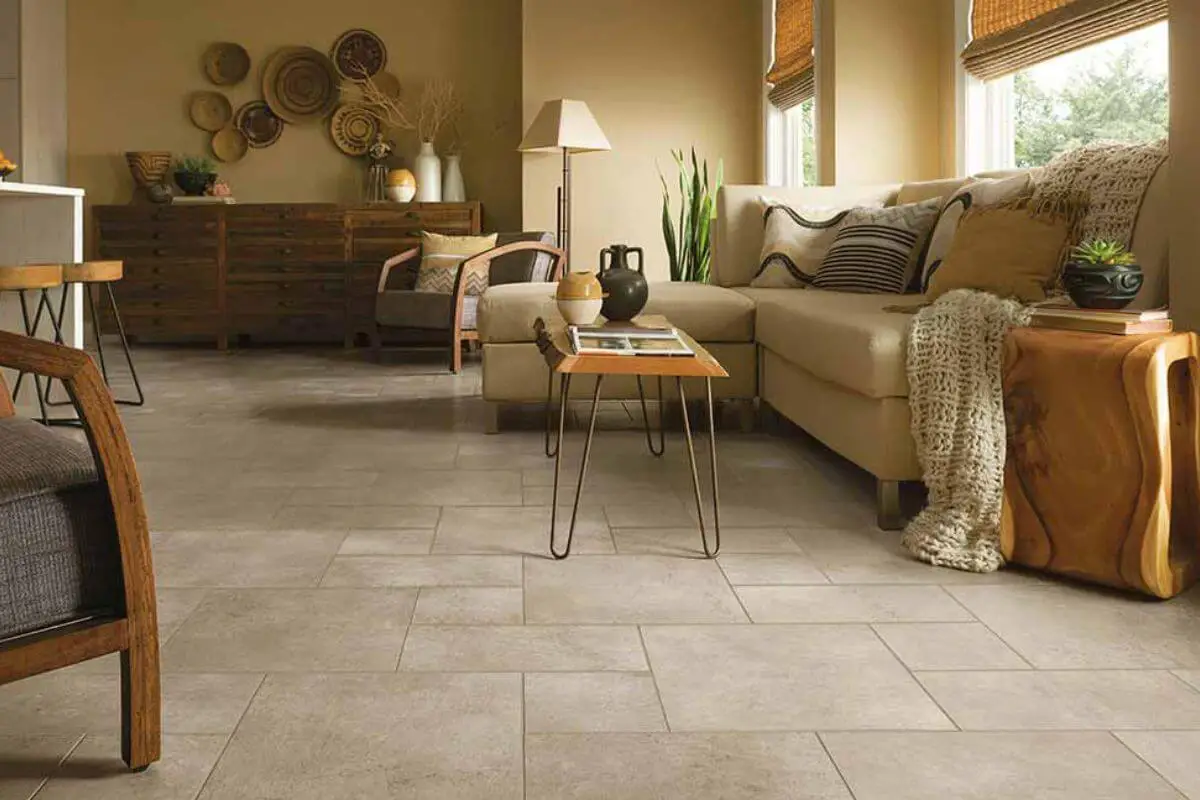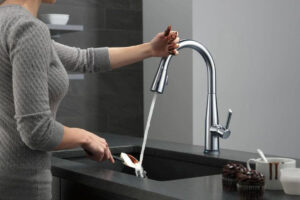Selecting the right flooring for your kitchen is a crucial decision, as it needs to withstand daily wear and tear while complementing your kitchen’s aesthetics. Two popular options for kitchen flooring are tile and vinyl plank. In this article, we’ll thoroughly compare tile and vinyl plank flooring to help you make an informed choice for your kitchen.
Introduction
The kitchen is a high-traffic area where spills, foot traffic, and durability are paramount. Understanding the benefits and drawbacks of both tile and vinyl plank flooring can help you make a well-informed decision.
Tile Flooring
Advantages
1. Durability
- Tile flooring is exceptionally durable and can withstand heavy foot traffic, spills, and kitchen mishaps.
2. Water Resistance
- Tiles are highly resistant to water, making them an excellent choice for kitchens prone to spills and moisture.
3. Aesthetic Versatility
- Tiles come in a wide variety of colors, patterns, and textures, allowing you to achieve the desired look for your kitchen.
Considerations
1. Cold Surface
- Tiles can feel cold underfoot, which may not be as comfortable, especially in colder climates.
2. Grout Maintenance
- Regular cleaning and maintenance of grout lines are necessary to prevent discoloration and dirt buildup.
Vinyl Plank Flooring
Advantages
1. Affordability
- Vinyl plank flooring is often more budget-friendly compared to tile, making it an attractive option for cost-conscious homeowners.

2. Comfort
- Vinyl plank provides a softer and warmer surface compared to tile, which can be more comfortable for extended periods of standing and cooking.
3. Easy Installation
- Vinyl plank is relatively easy to install, and it’s available in both click-together and peel-and-stick options, making it suitable for DIY projects.
Considerations
1. Durability
- While vinyl plank is durable, it may not be as resilient as tile, especially when subjected to heavy appliances or sharp objects.
2. Water Resistance
- While vinyl plank is water-resistant, it may not be entirely waterproof. Prolonged exposure to moisture can lead to damage.
Which One is Right for Your Kitchen?
The choice between tile and vinyl plank flooring depends on your specific needs and preferences:
- Choose Tile If:
- Durability and water resistance are your top priorities.
- You prefer a wide variety of styles and are willing to invest in regular grout maintenance.
- You want a timeless and classic look for your kitchen.
- Choose Vinyl Plank If:
- Budget is a significant consideration, and you seek an affordable option.
- Comfort and warmth underfoot are important to you.
- You prefer a flooring option that is relatively easy to install.
Conclusion
In the tile vs. vinyl plank flooring debate, there is no one-size-fits-all answer. Your choice should align with your lifestyle, budget, and design preferences. Both options offer unique advantages, so consider your priorities carefully before making your decision.
FAQs
Can vinyl plank flooring mimic the appearance of hardwood or tile effectively?
Yes, vinyl plank flooring can closely resemble the look of hardwood or tile, thanks to advanced printing and embossing technologies.
Is vinyl plank flooring suitable for kitchens with heavy foot traffic?
Vinyl plank flooring is suitable for moderate to heavy foot traffic areas, but it may not be as durable as tile in the long run.
Can I install vinyl plank flooring over existing flooring in my kitchen?
In many cases, vinyl plank flooring can be installed over existing floors, provided that the subfloor is in good condition. However, it’s essential to follow the manufacturer’s guidelines for installation.
Which flooring option is more resistant to scratches caused by pets or heavy kitchen appliances?
Tile flooring is generally more scratch-resistant, making it a better choice if you have heavy appliances or pets in the kitchen.
Does vinyl plank flooring require any special maintenance?
Vinyl plank flooring is relatively low-maintenance. Regular sweeping and occasional mopping are typically sufficient to keep it clean and in good condition.
Can tile flooring be installed in a DIY project, or is professional installation recommended?
While DIY installation is possible for tile flooring, it can be more challenging than vinyl plank flooring. Professional installation is often recommended, especially for complex patterns and large spaces.
Are there eco-friendly options available for both tile and vinyl plank flooring?
Yes, eco-friendly options exist for both types of flooring. Look for tiles made from sustainable materials or recycled content. For vinyl plank, consider brands that offer eco-friendly and low-VOC (volatile organic compound) options.
How does each type of flooring handle spills and moisture?
Tile is highly resistant to moisture and spills, while vinyl plank is water-resistant but may not be entirely waterproof. It’s essential to clean up spills promptly with both options to prevent damage.
Can I use radiant floor heating with both tile and vinyl plank flooring?
Yes, both types of flooring can be compatible with radiant floor heating systems, providing added comfort and warmth to your kitchen.
Is tile flooring more likely to crack or chip over time compared to vinyl plank?
While tile is durable, it can be prone to cracking or chipping if heavy objects are dropped on it. Vinyl plank is more forgiving in this regard.
Do either of these flooring options require special underlayment or subfloor preparation?
Tile flooring may require a level and properly prepared subfloor, which can involve additional steps like cement backer board installation. Vinyl plank is often more forgiving of minor imperfections in the subfloor.
Which flooring option is more stain-resistant, especially in a kitchen prone to spills?
Tile is generally more stain-resistant due to its non-porous surface. Vinyl plank can resist many stains but may be less forgiving if spills are left unattended for an extended period.
Can vinyl plank flooring be easily removed or replaced if needed?
Vinyl plank flooring is designed for relatively easy removal and replacement, making it a flexible choice if you anticipate changes to your kitchen in the future.
Do either of these flooring options require special care for underfloor heating systems?
Both tile and vinyl plank flooring are compatible with underfloor heating systems, but it’s essential to follow the manufacturer’s guidelines for installation and operation.
Can I mix and match tile and vinyl plank flooring in my kitchen for a unique design?
Mixing and matching tile and vinyl plank can create interesting design effects in your kitchen. However, it’s essential to plan the transition between the two materials carefully and ensure a cohesive look.
Remember that your choice between tile and vinyl plank flooring should align with your unique kitchen needs, style preferences, and budget considerations. Consulting with flooring professionals can provide personalized guidance based on your specific kitchen space.



